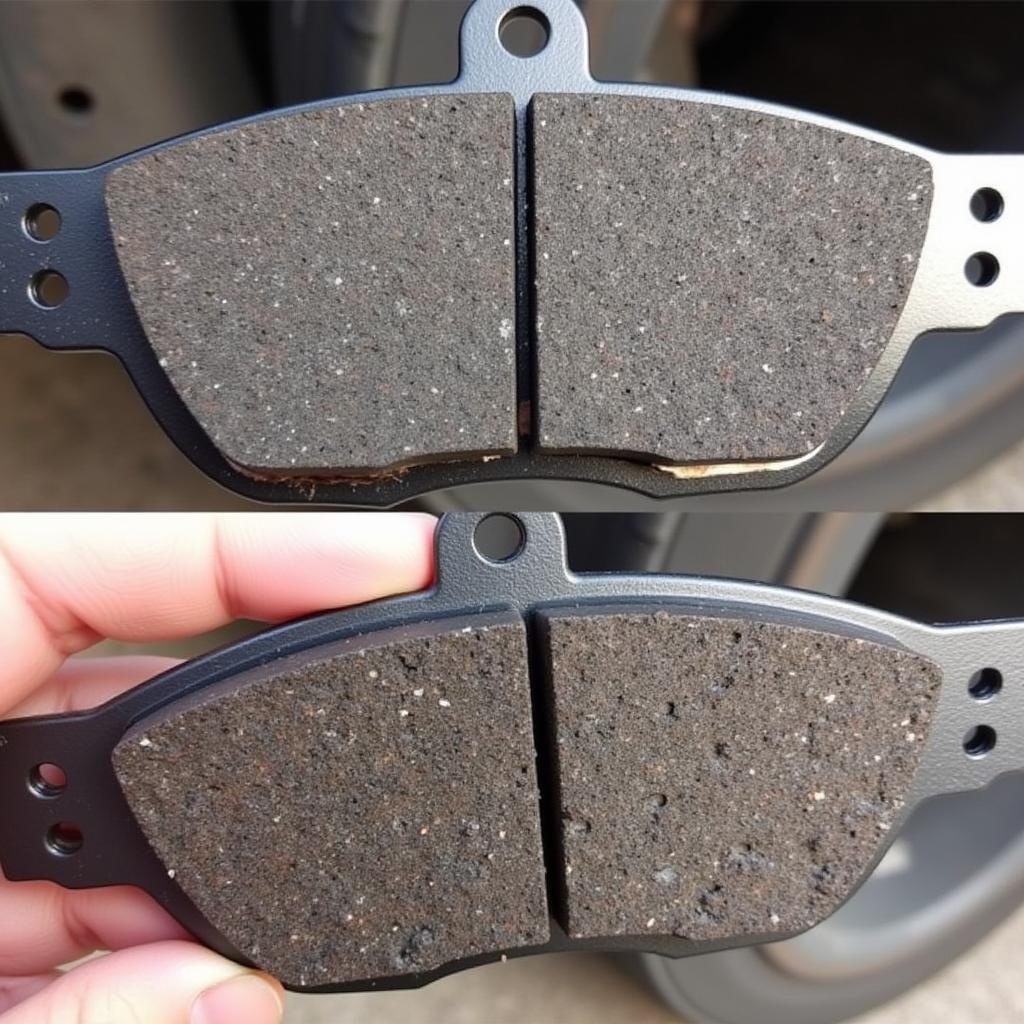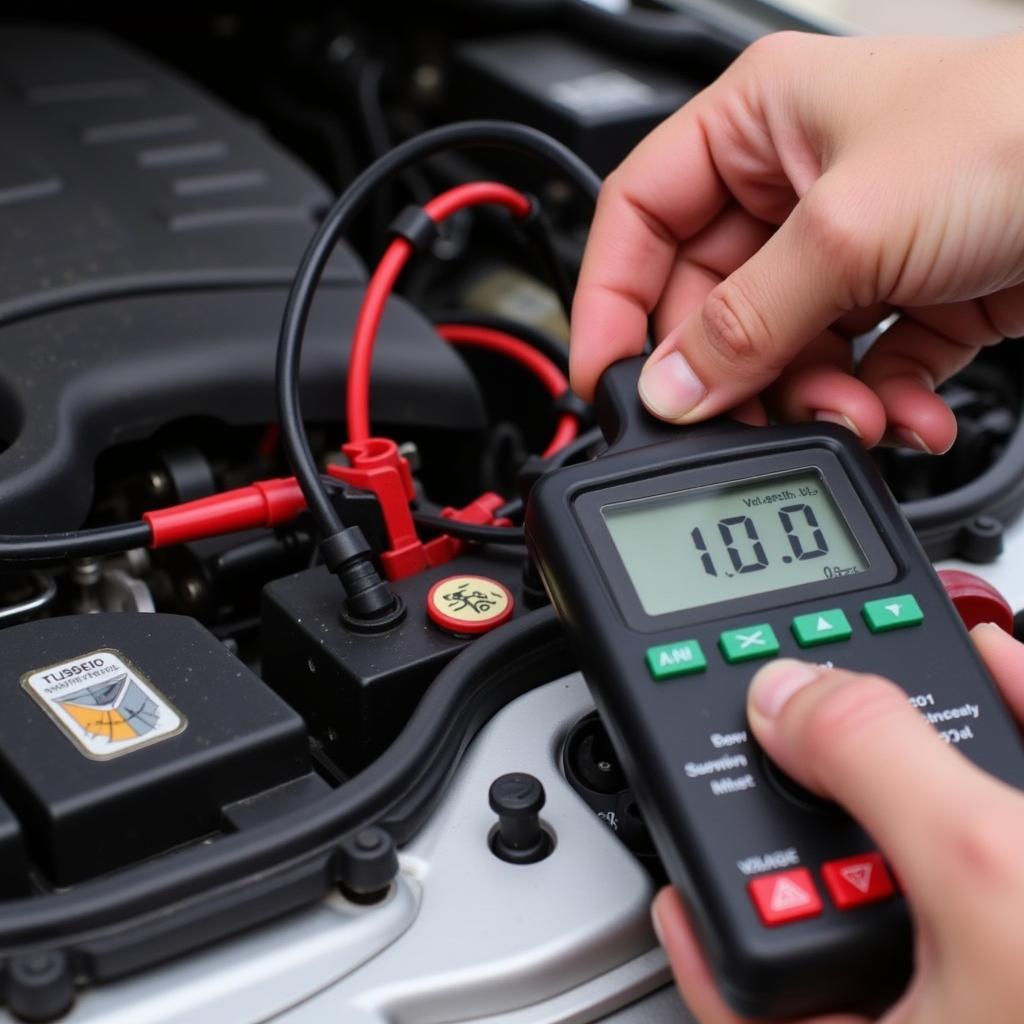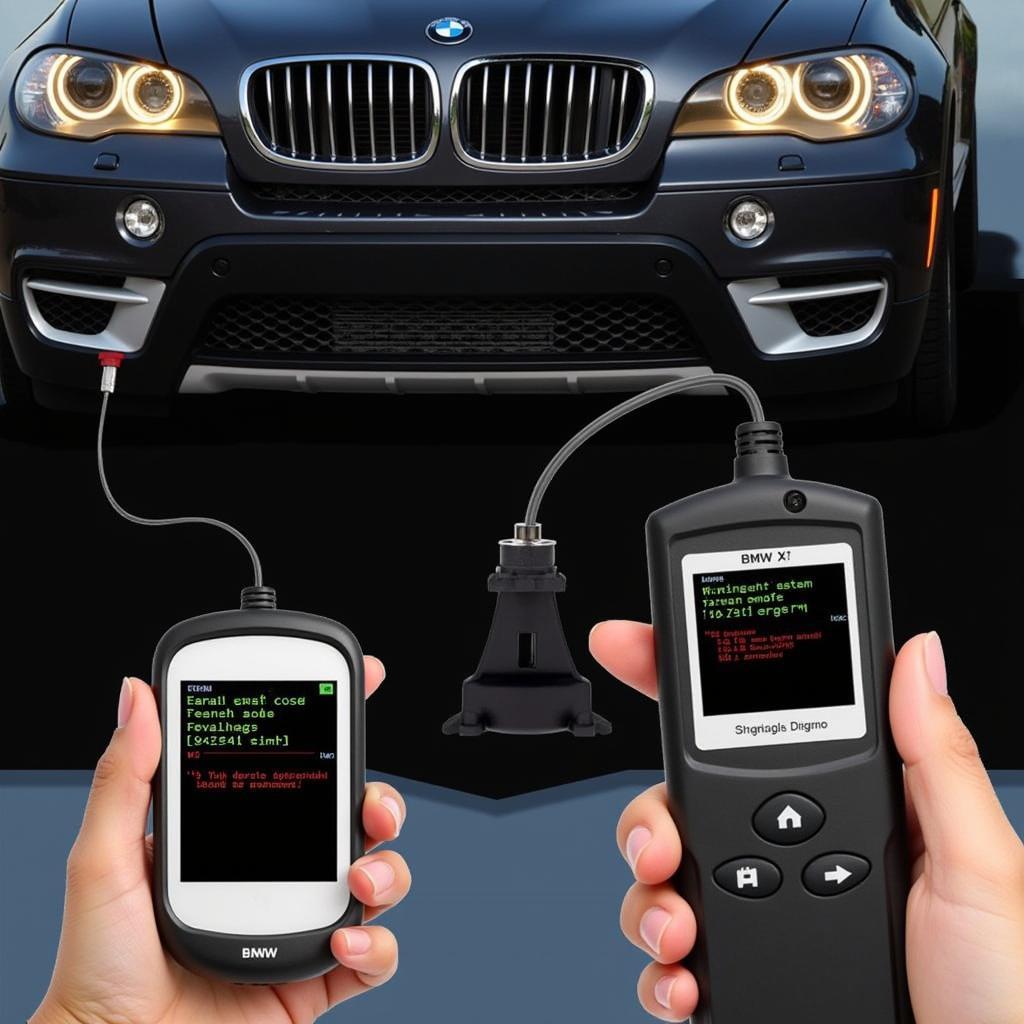The Pontiac Vibe brake warning light can be a frustrating issue. This comprehensive guide will explore the common causes of a Pontiac Vibe brake warning light, provide troubleshooting steps, and offer solutions so you can get back on the road safely. 2009 pontiac vibe brake warning light
Understanding Your Pontiac Vibe’s Brake System
Your Pontiac Vibe’s brake system is critical for safe operation. It’s a complex system with several components, including the master cylinder, brake lines, calipers, and brake pads. When the brake warning light illuminates, it indicates a potential problem within this system that requires immediate attention.
Common Causes of a Pontiac Vibe Brake Warning Light
The brake warning light can illuminate for several reasons, ranging from simple issues to more complex problems. These include low brake fluid, worn brake pads, a faulty brake sensor, or issues with the ABS system. Ignoring this warning light can lead to serious safety risks.
-
Low Brake Fluid: This is the most common cause. Over time, brake fluid can leak, leading to a drop in fluid level and triggering the warning light.
-
Worn Brake Pads: As brake pads wear down, they eventually reach a point where they need replacement. A sensor triggers the warning light to alert you to this.
-
Faulty Brake Sensor: Sometimes, the sensor itself can malfunction, causing the light to come on even if there’s no actual problem with the brakes.
-
ABS Issues: Problems with the Anti-lock Braking System (ABS) can also trigger the brake warning light. This often requires more advanced diagnostics.
Troubleshooting Your Pontiac Vibe Brake Warning Light
If your brake warning light is on, follow these steps to troubleshoot the issue:
-
Check the Brake Fluid Level: Open the hood and locate the brake fluid reservoir. Check the fluid level; if it’s low, add brake fluid until it reaches the “MAX” line.
-
Inspect the Brake Pads: Visually inspect your brake pads. If they appear thin or worn, they likely need replacement.
-
Check for Leaks: Look for any signs of brake fluid leaks around the brake lines, calipers, and master cylinder.
“Regular brake system inspections are crucial,” says John Miller, a certified automotive technician with over 20 years of experience. “Catching these issues early can prevent costly repairs and ensure your safety on the road.”
When to Seek Professional Help
If you’ve checked the brake fluid, pads, and lines and the light remains on, it’s time to consult a qualified mechanic. They have the specialized tools and knowledge to diagnose more complex problems, such as ABS issues or faulty sensors. [2009 pontiac vibe brake warning light](https://cardiagtech.shop/2009-pontiac vibe-brake-warning-light/)
Preventing Future Brake Problems
Regular maintenance is key to preventing brake issues. This includes regular brake fluid flushes, timely brake pad replacements, and routine inspections.
 Worn Pontiac Vibe Brake Pads
Worn Pontiac Vibe Brake Pads
“Preventive maintenance can save you money and headaches in the long run,” adds Miller. “It’s always better to address potential issues before they become major problems.”
Conclusion
The Pontiac Vibe brake warning light is a crucial safety feature. Understanding its causes and taking prompt action can ensure the safe operation of your vehicle. Regular maintenance and professional diagnostics are key to keeping your brakes in top condition and preventing future problems. Addressing the Pontiac Vibe brake warning light quickly can help you avoid costly repairs and ensure your safety on the road.
FAQ
- What does the Pontiac Vibe brake warning light mean? It indicates a potential issue with your brake system, such as low brake fluid or worn brake pads.
- Can I drive with the brake warning light on? It’s not recommended. It indicates a potential safety hazard and should be addressed immediately.
- How often should I check my brake fluid? Check it at least once a month and top it off if necessary.
- How often should I replace my brake pads? It depends on driving habits and conditions, but generally every 30,000 to 70,000 miles.
- What should I do if I see a brake fluid leak? Do not drive the car. Contact a mechanic immediately.
- How much does it cost to fix a Pontiac Vibe brake warning light issue? It varies depending on the underlying cause.
- Can I fix the brake warning light issue myself? Simple issues like low brake fluid can be addressed at home. More complex problems require professional assistance.



